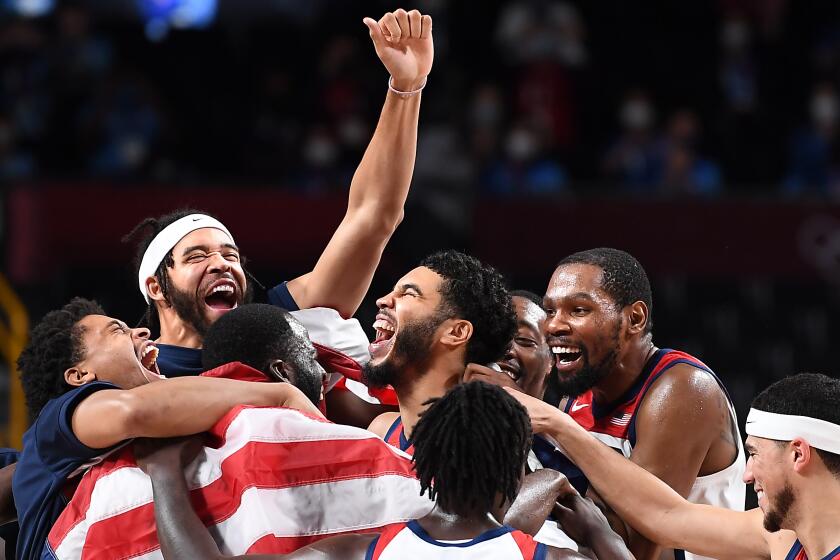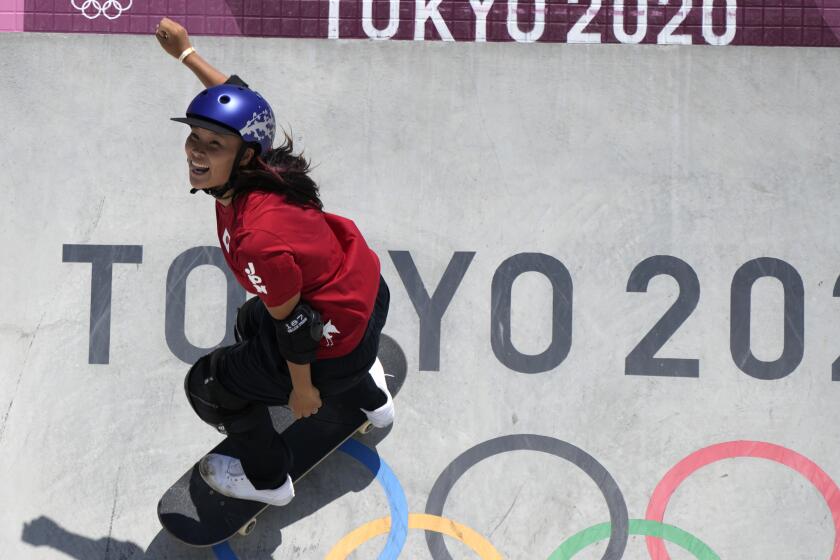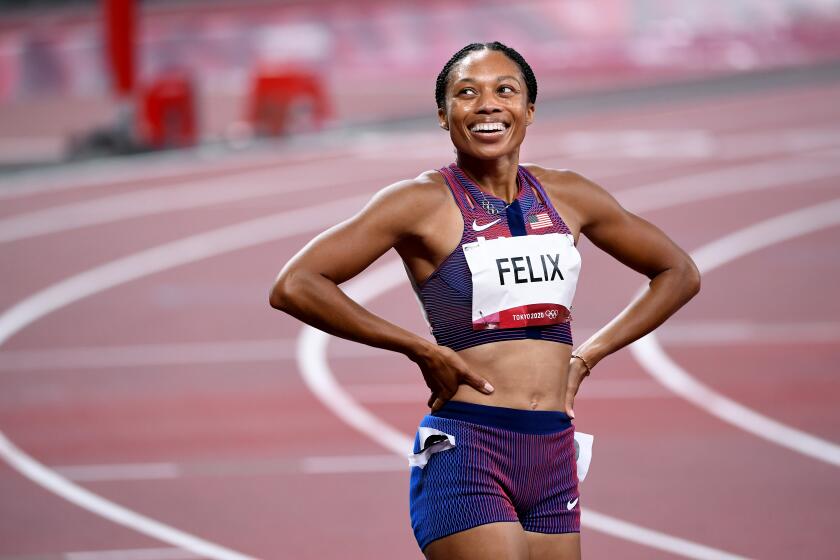Despite the IOC’s fears, the Tokyo Olympics didn’t become the Protest Games
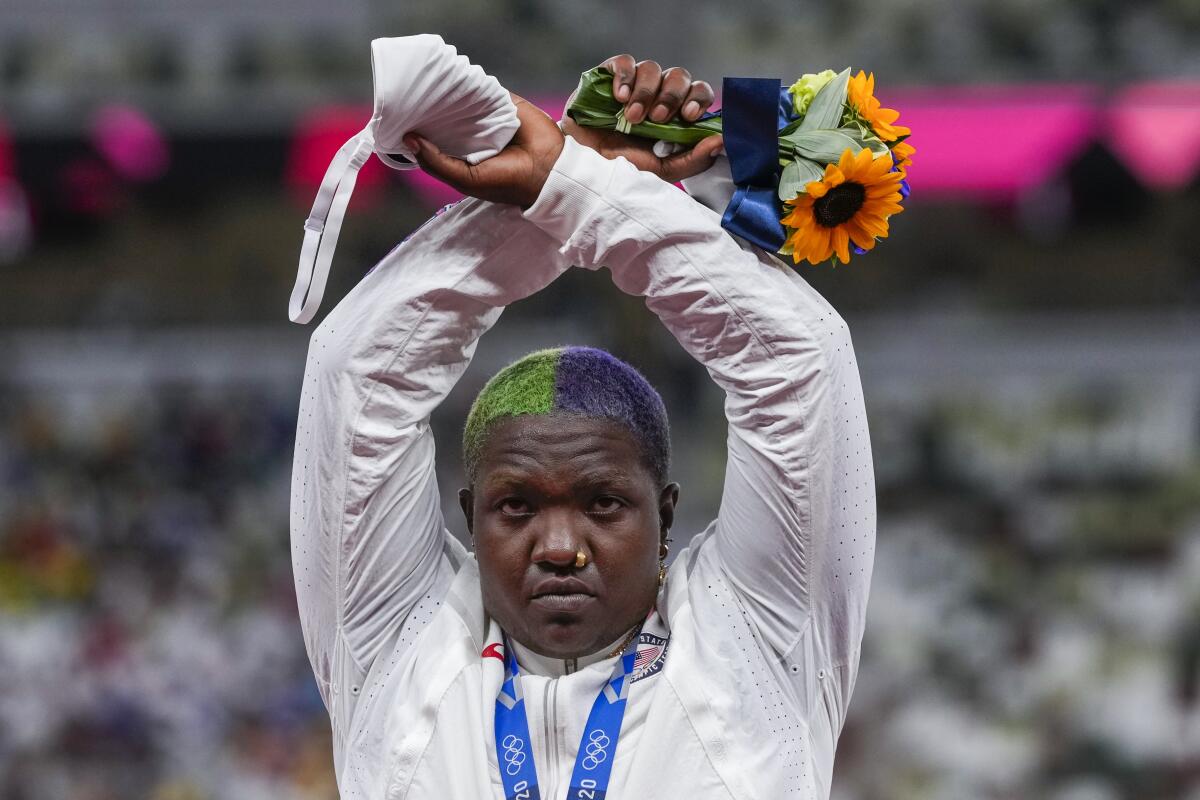
- Share via
TOKYO — The battle lines were drawn last year.
With more and more American athletes choosing to kneel or raise a fist on the medals podium, joining a nationwide movement for social justice, the U.S. Olympic & Paralympic Committee relaxed its long-time ban on protests.
“We believe that Team USA athletes, in line with many other sports and leagues in the United States, can be a leading force for global good,” USOPC chairwoman Susanne Lyons said.
The International Olympic Committee refused to follow suit, offering only a slight modification in its “no politics” stance. The IOC and the Americans appeared to be on a collision course heading for the Tokyo Games.
The United States men’s basketball team beat France to win its fourth consecutive Olympic gold medal. Kevin Durant led the way with 29 points.
“People say, ‘Oh, you’re just an athlete’ but we’re not just athletes, we’re people too,” gymnast Simone Biles said. “We have a right to speak up for what we believe in.”
But the expected confrontation has been unexpectedly muted.
With competition near the end, there have been only a few, relatively mild demonstrations by athletes from the U.S. and other countries. Whether because of the COVID-19 pandemic, a lack of fans at venues or the heightened atmosphere of the Olympic Games, the IOC’s traditional gag order has gone largely unchallenged.
At issue is Rule 50, which states: “No kind of demonstration or political, religious or racial propaganda is permitted in any Olympic sites, venues or other areas.”
In early July, IOC officials relented a little. The podium was still off-limits, but athletes could “express their views” on-field before competition began. So there was no violation when women’s soccer teams from the U.S., Sweden, Japan and other nations took a knee before their matches.
Tokyo skateboarders say the reality on the streets is a far cry from the Olympic glory currently being bestowed on the sport
“For us it feels right to stand up for human rights,” Swedish defender Amanda Ilestedt said after playing the Americans. “There was communication with the U.S. team. It feels good to do that, it is something we stand for as a team.”
Last week, shot putter Raven Saunders crossed her arms overhead while receiving a silver medal. The gesture, she told reporters, represented “the intersection of where all people who are oppressed meet.”
The IOC quickly launched an investigation, but then Saunders’ mother died.
“We sent our condolences to her and her family,” IOC spokesman Mark Adams told reporters. “For the moment, I would say the process is parked and for obvious reasons we wouldn’t want to raise that issue any more at the moment.”
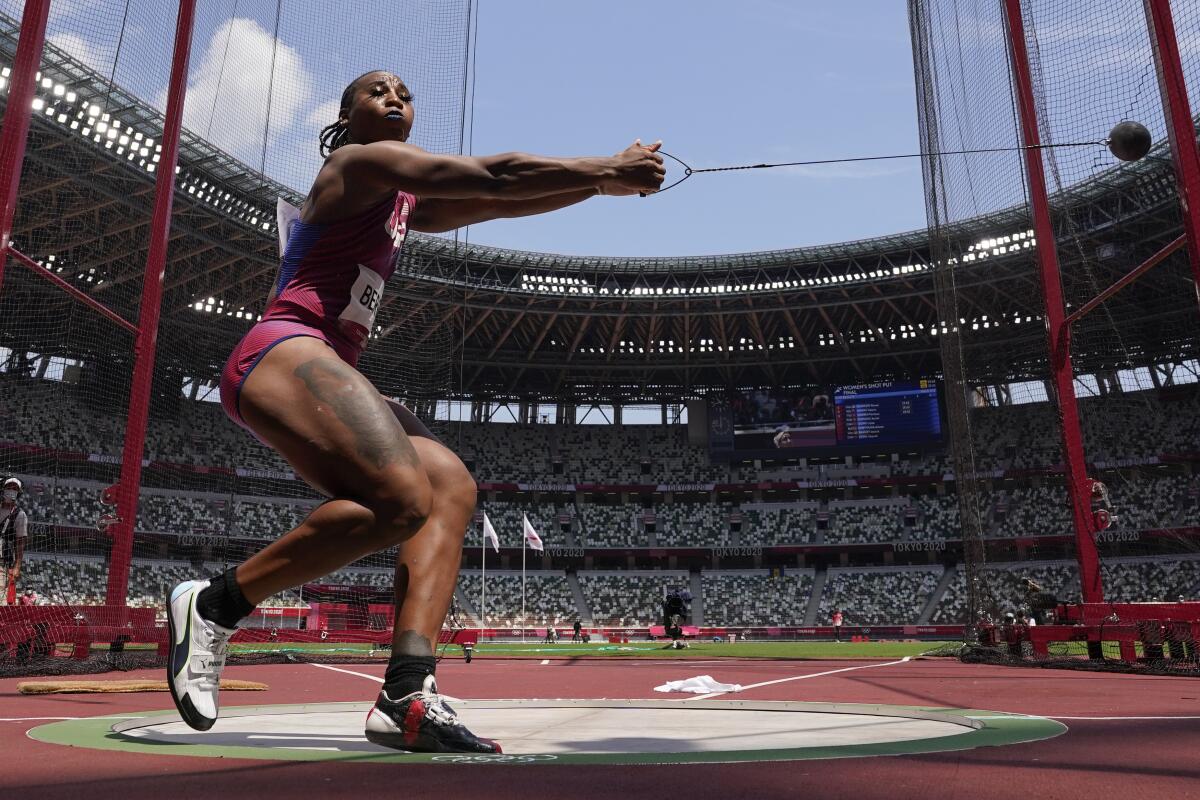
Hammer thrower Gwen Berry, who raised a fist on the podium at the 2019 Pan American Games, did the same before her competition here but did not win a medal.
Fencer Race Imboden, who kneeled at the Pan Am Games, expressed himself with a circled “X” on the back of his hand as the U.S. men’s foil team received its bronze medals. He had expressed a desire to tone things down in Tokyo.
“It’s not my position to cause a stir,” he said.
There was another, more conspicuous protest among the American fencers, though it arose from an internal conflict. Alen Hadzic, an epeeist, had been accused of sexual misconduct by multiple women before the Games, prompting much of the team to ask that he be prohibited from the athletes village.
Hadzic stayed in a separate hotel, and the other three members of his squad showed up for competition wearing pink masks.
Americans weren’t the only ones who arrived in Japan with protest on their minds.
Before the Games even began, the South Korean team hung banners outside their apartments at the athletes village making reference to past conflicts with Japan. Olympic officials quickly had them remove the banners.
“The guidelines are also saying very clearly that the Olympic village is one of the protected areas where the athletes can live peacefully together without having to face any kind of divisive messages,” IOC president Thomas Bach said.
Two Chinese cyclists wore Mao pins on the podium. After 10 Nigerian athletes were declared ineligible for missing pre-competition doping tests, some of them took to the streets of Tokyo, holding up cardboard signs criticizing their own sports officials for failing to administer the tests.
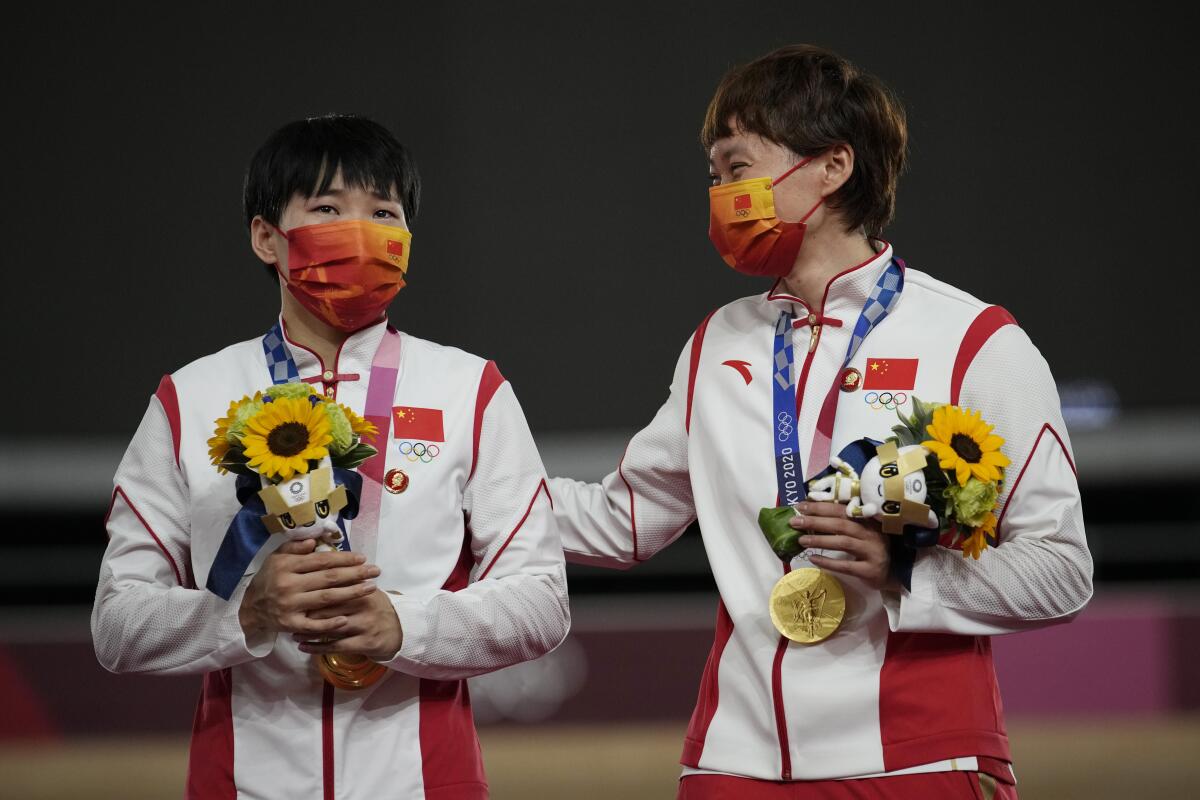
At the Ariake Gymnastics Centre, Costa Rican gymnast Luciana Alvarado ended her floor routine by taking a knee and raising a fist in support of equal rights.
“Because we’re all the same,” she said, “and we’re all beautiful and amazing.”
There was also the issue of demonstrations outside Olympic venues — beginning with the opening ceremony on July 23 — as some Japanese residents voiced their anger at the massive event being held during a pandemic. Shouting could be heard outside the men’s tennis championship, though the athletes downplayed it.
“I think the Olympics are very important to be happening right now,” gold medalist Alexander Zverev of Germany told reporters. “Not only for Japan, but the whole world.”
L.A. native leaves legacy as an advocate for better medical treatment for Black women during pregnancy and equitable treatment for all female athletes.
The dearth of widespread political and social rancor inside venues might not have been surprising, given the circumstances, but it was on Berry’s mind.
“I know a lot of people like me, a lot of athletes like me, a lot of people are scared to succeed or speak out,” the hammer thrower said. “As long as I can represent those people, I’m fine.”
More to Read
Go beyond the scoreboard
Get the latest on L.A.'s teams in the daily Sports Report newsletter.
You may occasionally receive promotional content from the Los Angeles Times.

